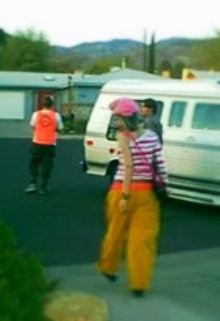
Helping other people understand unschooling isn't easy. It can take months or years for people to get it. For natural learning to flourish with them, they need to change the way they act and even the way they see learning and education. In discussions and on message boards and at conferences, people's thinking can seem to have been criticized, and some object. They want the speakers or writers to soften up, ease up, "support them." There's a difference between supporting changing in order to better understand unschooling, and the vanilla "support" that women can become accustomed to. Nice noise and soothing words of praise are what many people think of as "support."
photo by Sandra Dodd
__






